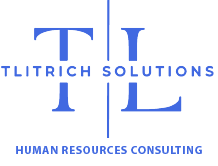For small business owners, tax season can feel overwhelming. From tracking expenses to understanding deductions, managing business taxes requires careful planning and organization. At TLitrich Solutions, we specialize in helping businesses streamline their HR and compliance processes, and that includes ensuring you’re well-prepared for tax time. Here are some key tips to help your small business stay compliant and potentially save money.
1. Keep Accurate Financial Records
Maintaining detailed financial records is essential for tax compliance and efficient filing. Use accounting software to track income, expenses, and payroll. Be sure to save receipts, invoices, and bank statements in an organized manner, as these documents may be required for deductions or in case of an audit.
2. Understand Your Tax Obligations
Depending on your business structure (sole proprietorship, LLC, S-Corp, etc.), you may have different tax obligations. Research federal, state, and local tax requirements to ensure compliance. Common taxes small businesses need to consider include income tax, self-employment tax, payroll tax, and sales tax.
3. Separate Business and Personal Finances
Mixing personal and business finances can lead to confusion and potential tax issues. Open a dedicated business bank account and credit card to ensure all business transactions are properly recorded and categorized.
4. Take Advantage of Deductions
Many small business expenses are tax-deductible, helping to reduce your taxable income. Common deductions include:
- Office supplies and equipment
- Business-related travel and meals
- Home office expenses (if applicable)
- Professional services (e.g., accounting, legal, HR consulting)
- Marketing and advertising costs Keeping track of these expenses throughout the year can maximize your deductions and lower your tax burden.
5. Pay Estimated Taxes Quarterly
If your business expects to owe at least $1,000 in taxes, you may be required to pay estimated taxes on a quarterly basis. Missing these payments can result in penalties and interest. Use IRS Form 1040-ES to calculate your estimated tax liability and stay on schedule.
6. Stay Up to Date on Tax Law Changes
Tax laws and deductions frequently change, and staying informed can help you take advantage of new opportunities while avoiding compliance issues. Consider consulting with a tax professional or subscribing to IRS updates to remain current on any changes affecting your business.
7. Work with a Tax Professional
Even with careful preparation, tax regulations can be complex. Hiring a qualified accountant or tax professional can help ensure accuracy, maximize deductions, and minimize tax liabilities. They can also assist with year-round tax planning to optimize your financial strategy.
Final Thoughts
By keeping accurate records, understanding tax obligations, and leveraging available deductions, small businesses can simplify the tax process and potentially reduce costs. At TLitrich Solutions, we support business owners with expert HR consulting to help them navigate compliance challenges with confidence.
